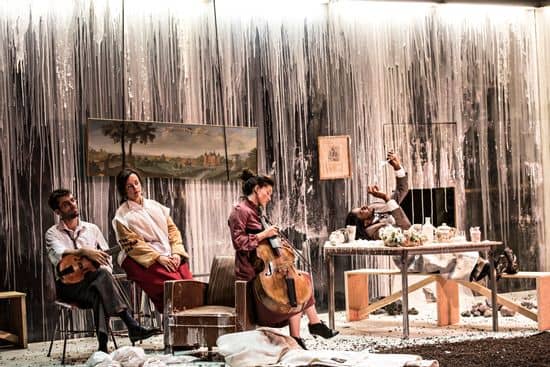Songs
Directed by Samuel Achache
With Lucile Richardot and La vie brève
“All action requires oblivion, just as every organism needs not only light, but also darkness. A man who would like to feel only in a purely historical way would resemble someone who has been forced to deprive himself of sleep, or an animal who would be condemned to ruminate unceasingly on the same food. It is therefore possible to live without almost remembering, to live even happily, like the animal, but it is absolutely impossible to live without forgetting.”
Friedrich Nietzsche
We have to imagine a place that is not part of our reality, a crack in the bowels of our world: an orchestra that has lost track of time, playing continuously in a musical instrument junkyard. We have to imagine a woman, who sings in English pieces of music from the 17th century that are unknown to us and that delve into melancholy, sadness and sorrow – most often of love. This music and this song play uninterruptedly so that our sorrows are alleviated, that life remains livable and that we put our sorrows in the archives.
In the manner of a small antique choir, the orchestra and two singers populate and activate this great melancholic machinery. They will make sensitive and material the descent “in itself” of this woman. The orchestra will also be the scenography of this show, in the middle of an infinitely superior quantity of musical instruments: the rubble of instruments that may or may not be working, that we do not know or that are broken, diverted, cut in two. A real ‘baroque junkyard’, an overturned Parnassus.
One day another woman arrives. She claims her sorrows, refuses to forget, wants to keep her pains alive. She comes to recover her property and prevent it from fleeing into oblivion. Will she succeed? Here, a certain order is at work and oblivion is well kept.
Samuel Achache
